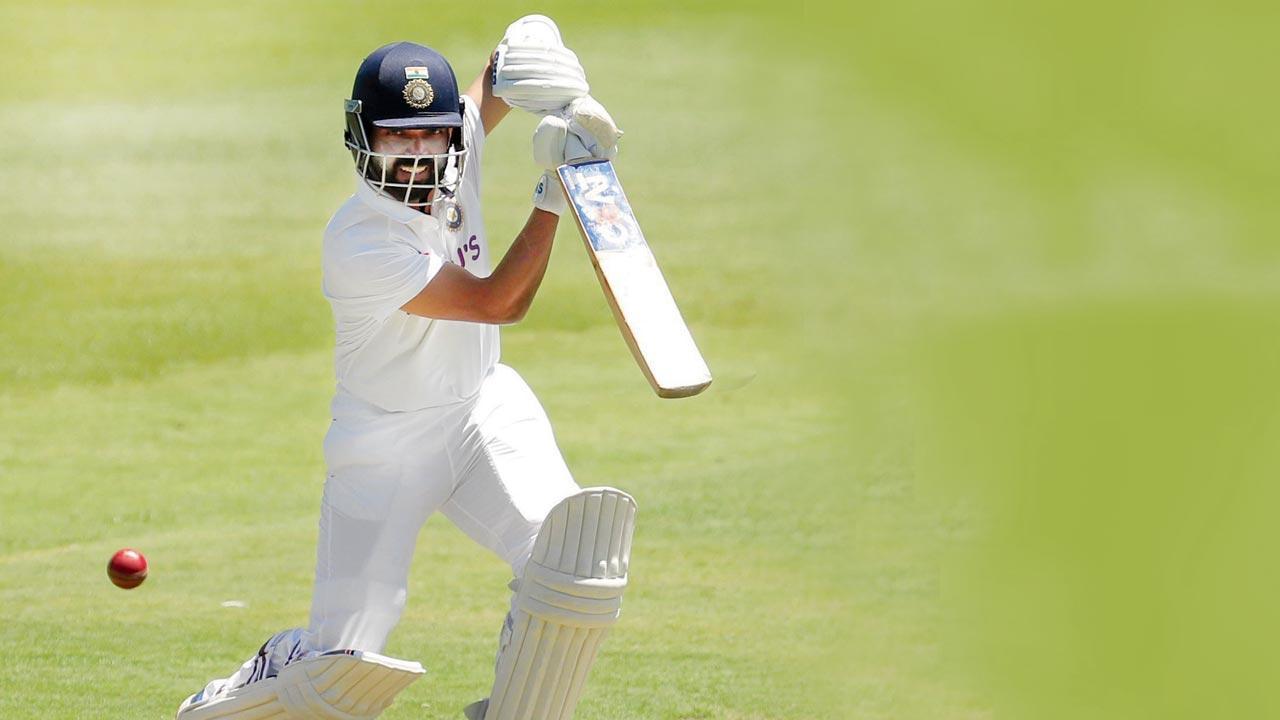Ajinkya Rahane's success as skipper is because he is brave, smart, calm and has earned respect from his teammates, one of the most important aspects of good captaincy.

Ajinkya Rahane. Pic/Getty Images
It was no surprise that Ajinkya Rahane captained India flawlessly at the MCG; anyone who saw him in charge at Dharamsala in 2017 would've recognised a man born to lead cricket teams.
ADVERTISEMENT
There were a lot of similarities between that 2017 match and the one at the MCG. Firstly, it was between the same two highly-competitive rivals, then there was the valuable first innings lower order contribution from Ravindra Jadeja and finally Rahane aggressively accumulating the required runs in a nervy pursuit of a moderate victory total.
The moment that caught my attention in the Dharamsala match was when Rahane called on debutant left-arm wrist spinner Kuldeep Yadav with David Warner and Steven Smith involved in a century partnership. "This is a brave move," I thought and it turned out to be a very smart one. Kuldeep quickly claimed the wicket of Warner—expertly caught by Rahane at first slip—and this prompted a five-wicket slide among the Australian middle-order.
That's part of Rahane's success as a skipper; he's brave and smart. However, there's much more to his leadership than just those two important qualities.
He's calm when things could easily get out of hand. He's earned the respect from his teammates, one of the most important aspects of good captaincy. And he gets runs when they are needed, which adds to the respect his team has for him.
India knew they would be missing the highly valued skills of Virat Kohli following the first Test. Adding to the weight on Rahane's shoulders, India suffered an abysmal collapse in Adelaide. As if that wasn't enough, Rahane was responsible for Kohli's run out in the first innings when India was easing into a dominant position.
Confident unit
Despite all those deflating factors, the Indian team strode onto the MCG a week later—after Tim Paine had won the toss—as though they were leading 1-nil.
In part that was because they were aware, the Australian opening partnership was in turmoil. They also knew that one man couldn't replicate the supreme deeds of Kohli and it was going to take an extra effort from all concerned to overcome his absence. And finally there was the captain they greatly respected; they wanted to play well for Rahane.
And boy didn't they do that. There was Jasprit Bumrah excelling as usual at the MCG; ambushing batsmen regularly. R Ashwin with his new-found confidence in Australian conditions was exerting his influence over Smith, a vital early wicket that further boosted India's confidence. Inspired by the seniors, the debutants Shubman Gill and Mohammed Siraj made significant contributions as they adjusted quickly to Australian conditions.
Despite those valuable performances, the one that turned the match firmly in India's favour was the Johnny Mullagh medal-winning contribution from Rahane. The captain's century came at a time when India could easily have faded to a two-nil deficit and it was this performance which gave his team the conviction that victory was attainable.
'Come on, India'
A former resident of Mumbai told me his wife lip-read the words: "Come on, India," when Rahane reached his MCG century. That is another thing that defines Rahane's captaincy; he's all about the team.
At a time when aggressive, pro-active international captaincy is in short supply, India are fortunate to have two leaders who both understand the value of taking wickets over containing the opposition.
This tantalising series is far from over and India still have concerns with yet another fast bowling injury and an opening batsman in a quandary. However, despite coming off a twin towers style collapse in Adelaide, along with the departure of their best batsman and the loss of two leading fast bowlers, India have less selection headaches than Australia.
It's helpful that they have a strong, calm leader and a vibrant spirit that has built up under the Kohli-Rahane-Ravi Shastri coalition. If India does go on to repeat their last tour success in Australia, the Mullagh medal won't be the only gong Rahane receives.
 Subscribe today by clicking the link and stay updated with the latest news!" Click here!
Subscribe today by clicking the link and stay updated with the latest news!" Click here!







